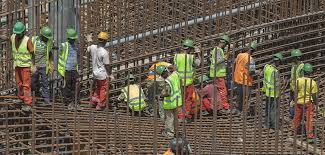This article originally appeared on G7G20.
Worldwide we are seeing an immense increase in population, and where will all those people go?
The answer: to the cities. Cities currently account for 53% of the world population and the numbers are rising. Furthermore, cities are responsible for 75% of the world’s energy use and produce more than 80% of all greenhouse gas emissions. We should not need more than these numbers to see that city infrastructure plays a huge role in global warming. Future City of Africa is currently organising a summit in Nairobi, Kenya, which will focus on sustainable urban development in Africa, as we are seeing the world’s fastest population growth there.
While Europe, North America and parts of Asia are facing issues associated with an aging population, more than 40% of most sub-Saharan African countries’ population is below 15 years old, which results in a fast-growing population alongside the fastest-growing middle class in the world. UNHabitat even predicts that 700 million additional people will move to the cities of Africa in the next 35 years. That means an entire New York City needs to be built – every six months!

Over the course of the past few years, many experts have speculated and discussed whether this will result in a disaster, or an economic boom. We at Future City of Africa don’t only see this as a possibility for an economic boom, but as an opportunity for Africa to take the lead in smart city infrastructure, and to become a role model for the rest of the world in designing cities that are environmentally, economically and socially sustainable.
Currently when discussing Africa, people often associate war, famine, diseases and poverty with the continent. What they should see is the fast-rising and innovative Africa, and now is the time to change Africa’s image. Underdeveloped utilities and infrastructure may look like a challenge, but they could be the greatest asset to African cities as they bypass the outdated 20th century infrastructure, instead creating and implementing 21st-century solutions. These solutions will be based on the latest mobile technology, big data and the sharing economy.
On the last day of the summit, we will have a mayors summit, where mayors of major cities in Africa and further will be meeting to discuss, but as the Youth Coordinator of the summit, it is my goal to include and engage the youth as much as possible in the summit, as they truly are the future of Africa.
Rut is an Icelandic One Young World Ambassador, currently studying in Japan. She is currently the Icelandic youth delegate at the European Council’s Congress of Local and Regional Authorities, as well as the Youth Coordinator for the Future City of Africa.


